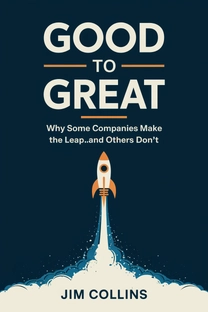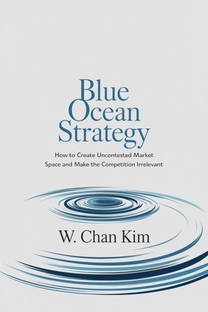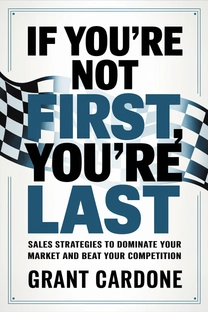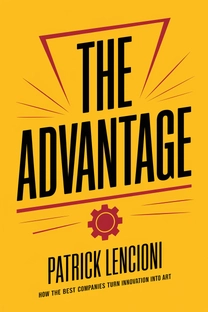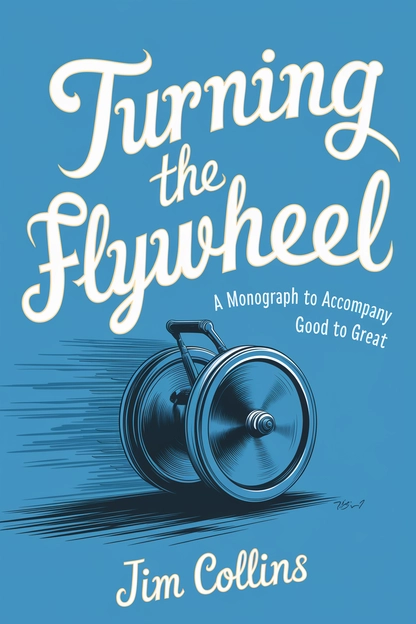
Turning the Flywheel
A Monograph to Accompany Good to Great
by Jim Collins
Brief overview
This book explores how small, consistent steps can generate significant and lasting progress in any organization. Expanding on a core idea known as the flywheel, it shows how steady effort in the right areas builds unstoppable momentum. Readers can expect to discover practical ways to achieve discipline, focus, and sustainable success.
Introduction
Welcome! Here, we dive into a powerful concept that explains why some organizations take off and never slow down. Rather than relying on one huge breakthrough or a stroke of luck, the idea is to harness small, consistent wins over time. Through stories of businesses and nonprofits, we’ll see how all these gradual steps lead to a pivotal moment of unstoppable progress. In a turbulent world, success doesn’t come from flashy announcements or radical upheavals. It often comes from committed people who focus on doing the right things again and again. The magic lies in how these efforts build upon each other, accelerating growth in surprising ways. As you read on, imagine you’re slowly turning a giant wheel. Each push might feel small, but every push adds up until, suddenly, the wheel whirs forward with ease. That image captures the heart of this book’s promise: noteworthy progress is within everyone’s reach, if only we understand the flywheel principle.
Before we begin, it’s worth remembering that this concept has helped companies like Amazon maintain growth, even amidst intense competition. It guided Intel through an industry pivot that reshaped the tech world. It inspired everyday businesses to keep steady, deliberate momentum rather than chasing gimmicks. So, consider this your warm invitation to explore a practical framework for transformation. You’ll learn how to be disciplined, yet creative, in building upon your strengths. And with each turn, you’ll inch closer to that exhilarating point where everything seems to click.
The Flywheel Principle
At the core of the flywheel concept is the idea that significant results don’t happen overnight. Imagine a massive, heavyweight wheel that’s stuck in place. In the beginning, you must push with all you’ve got just to get it moving. However, with each small turn, the wheel builds momentum, eventually spinning on its own with minimal effort from you. This is the opposite of chasing shortcuts or looking for a single defining moment. Instead, every disciplined action becomes part of a compounding effect. One good decision leads to the next, which sets up the next, and before you know it, the entire system is humming.
Companies that adopt this logic invest consistently in their best strategies rather than jumping from one trend to another. They avoid the temptation to discard perfectly good ideas for flashy new schemes. Instead, they turn their flywheel inch by inch, setting in motion an unstoppable force. What’s crucial here is alignment: every action should naturally strengthen the next step. Think of it like assembling puzzle pieces. If each piece fits smoothly, you’ll soon see a spectacular wider picture—and it’s often far more rewarding than a single quick fix could ever deliver.
A real-life example is Amazon’s early focus on low prices and convenience. Each success fed into higher sales, which in turn led to economies of scale, which then allowed even lower prices. Every rotation reinforced the one before it, until the flywheel became an engine for unstoppable growth. That’s where the brilliance lies—when the wheel begins to spin on its own.
What is Turning the Flywheel about?
"Turning the Flywheel: A Monograph to Accompany Good to Great" by Jim Collins extends the groundbreaking ideas first introduced in "Good to Great," providing a deeper dive into achieving consistent success through incremental steps. The book unveils a compelling framework known as the flywheel concept, a simple yet potent mechanism for transforming small, disciplined actions into substantial organizational momentum. At its core, the flywheel encapsulates the idea that sustainable progress does not arise from a solitary giant leap, but through steady, repetitive actions that build unstoppable energy.
This monograph offers profound insight into how compounding effort fuels success. Jim Collins delivers a strategic blueprint for organizations aiming to achieve their potential by highlighting the importance of disciplined actions, the refinement of existing processes, and the avoidance of the chaotic "doom loop." Whether you're leading a Fortune 500 company or a grassroots community project, his wisdom provides the clarity to cultivate lasting impact. "Turning the Flywheel" is not just an extension of ideas, but a standalone testament to the power of focused, purpose-driven development.
Review of Turning the Flywheel
Jim Collins' "Turning the Flywheel" distills years of research into a clear, actionable framework that is both elegant and insightful. One of the book's key strengths is its ability to articulate complex business strategies through the relatable metaphor of a flywheel. Collins successfully demystifies organizational success by focusing on incremental steps, illustrating how small, deliberate actions create momentum that propels companies towards their goals. This pragmatic approach finds practical application across various industries, making the reader understand that greatness is within reach more often than not.
The author writes with clarity and confidence, ensuring accessibility for a wide range of readers. The inspiring case studies breathe life into the theoretical underpinnings, offering tangible evidence of how companies like Amazon and Intel have leveraged the flywheel to maintain leadership over decades. It's a powerful reminder that not only flashy innovations matter, but also the consistent excellence that binds strategic intent to methodical progress.
Meant for executives, entrepreneurs, and anyone interested in harnessing potential through disciplined execution, "Turning the Flywheel" reveals the secret to maintaining and energizing the core strategy. Collins capably challenges leaders to shift from erratic to disciplined, from reactive to proactive. I wholeheartedly recommend this book to anyone wanting to translate ambition into sustained achievement, as it articulates a simple truth: lasting impact begins with purposeful, repeatable actions.
Who should read Turning the Flywheel?
- Business Leaders & Executives - Seeking sustainable success, these individuals will benefit from the flywheel's structured approach to growth.
- Entrepreneurs & Startups - Those building or scaling a business can adopt the flywheel framework to create measurable progress.
- Organizational Consultants - Professionals helping companies refine their operations and strategic goals can find valuable insights here.
- Educators & Academic Leaders - Applying the flywheel principle can lead to continuous improvement in educational settings.
- Nonprofit Managers - For mission-driven organizations, structured strategies foster consistent and meaningful societal impact.
About the author
Book summaries like Turning the Flywheel
Why readers love Mindleap
10-Minute Book Insights
Get the core ideas from the world's best books in just 10 minutes of reading or listening.
Curated For You
Discover your next favorite book with personalized recommendations based on your interests.
AI Book ExpertNew
Chat with our AI to help find the best book for you and your goals.
Reviews of MindLeap
Love how I can get the key ideas from books in just 15 minutes! Perfect for my busy schedule and helps me decide which books to read in full.
Alex R.
The summaries are incredibly well-written and the audio feature is perfect for my commute. Such a time-saver!
Jessica M.
Great app for personal growth. The insights are clear and actionable, and I love how they capture the essence of each book.
Chris P.
The app is beautifully designed and the summaries are top-notch. Definitely worth every penny!
Sarah K.


